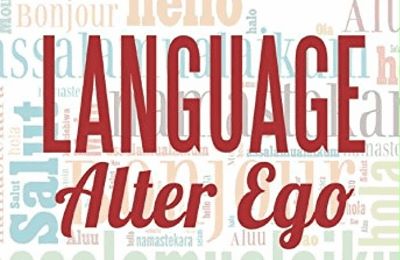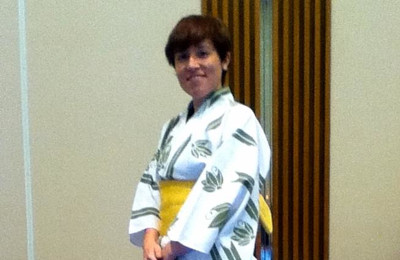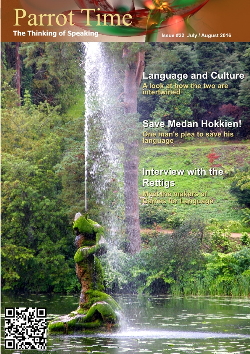In Others' Words
Ulrike and Peter Rettig

|
In this month's interview, we talked with Ulrike and Peter Rettig, the couple behind the learning site Games for Language. They gave us the story of where they came from and why they started their site, as well as their plans for the future. How did your website, GamesforLanguage, get started? Is there a particular message or goal with it? The idea of GamesforLanguage came out of our own experience with Italian, a few years ago. We were planning to spend six months in Rome. To prepare for our stay, we learned Italian from scratch with Pimsleur's audio courses (3 Levels, 90 lessons), by squeezing 30 minutes of audio learning into each day. When we arrived in Rome, we found we could use basic everyday language and had a pretty good pronunciation. However, we had great difficulty with reading and writing Italian. That was a real handicap. We could not even write simple sentences as our French interfered with the Italian spelling. It seemed to us that all four language skills were needed. We created GamesforLanguage in 2011, as an experiment for learning a language with both audio and text. Our son, a software developer (and author of Professional HTML5 Mobile Game Development) set up the website. Our daughter-in-law, a graphic designer, gave our site and the games her special touch. To make learning fun and engaging, we used a travel story and easy games for each of our four languages: French, German, Italian, and Spanish. (Our Inglés course for Spanish speakers is still in development and features only 2 levels.) The travel story is made up of everyday words and phrases, and provides context. The games break down the sentences into easy exercises to practice listening, speaking, reading, and some writing. Then, the player builds the sentences back together again with games like Word Invaders or Shootout. Once we had our website up and running, it was a natural step to add a blog. We share what has worked for us: tips on learning languages, especially learning a new language as an adult and ways to relearn a language learned in school. We do reviews of online programs and apps that we have liked and talk about any new research or new technologies we come across. We describe our own experiences with language-learning stays in Rome, Barcelona, Seville, Paris, and other places to come. We certainly don't claim to have the "best" way to acquire a language. It's been our experience that learning a language involves many types of different learning activities. In that spirit, we see GamesforLanguage as a fun addition to other language learning programs. Do you find writing a blog and creating a learning website to be satisfying for you, in terms of helping others? Or do you feel that there's too much competition? Competition is not on our mind. Our site is completely free. With our blog and website, we've had the chance to meet a lot of wonderful language aficionados online and in person. We're having a great time writing our blog and building the learning content of our website. Not to mention, that it's been really interesting to follow and be part of discussions on how adults learn languages. Plus, we enjoy doing research about new insights into learning that is made possible by new technology. For example, more and more research is pointing to the benefits of learning another language, no matter what age you are. Some of the research is surprising. Recently we were in contact with a researcher at a Swiss University, who confirmed that hearing foreign vocabulary during your sleep will benefit its memorization - if you practiced the vocabulary beforehand. See our blogpost: Foreign Language Learning While You Sleep Are there any blogs, websites, podcasts, video channels, etc., that you like to follow or have inspired you in your own work? There are many blogs, websites, podcasts, YouTube channels that we like. They are too numerous to name and we keep discovering new ones. We love the variety, the different approaches, and the unique personalities behind them. Most of all, we enjoy being part of the group of bloggers and other language professionals called Digital Language Collective (DLC). It's a wonderful forum for exchanging ideas and reading the latest blogposts of the members of the community is always inspiring. What got you interested in languages and more specifically, helping others with them?  We both have an international family background, growing up in Europe and emigrating to the US in our twenties. We visit our European families often, and functioning in other languages is just part of life for us, and no big deal. Ulrike: I moved to Canada at age 11, after a childhood in Austria and the Netherlands. My parents were both aged 50 when our family moved to Canada. They learned the language and made a new life there. At home, we used English, German, and Dutch (my mother's native language). From grade 7 on, I learned French in school. Before moving to the US to start graduate studies at age 25, I taught English for two years at the university in Freiburg, Germany. For me it was a natural choice to study German language and literature and after my PhD, I taught college German for several years in the Boston area. In the early 90s, when Pimsleur's Language Programs started to take off, I joined them as the author of the new German program and as development editor for a number of other courses. I left Pimsleur in 2010. I was ready to try something new. GamesforLanguage turned out to be the perfect project. Peter: I grew up in Austria and Germany, and finished my schooling there. At age 19, I moved to Zurich to study engineering, which was a challenge because many courses were held in Swiss German. For my first job, I settled in French-speaking Fribourg. By the time I emigrated to the US at age 27, I was fluent in French. More studies in New York City also helped me to brush up on my school English. then, after co-founding and then selling a successful consulting business, deciding to start up GamesforLanguage with Ulrike was a no-brainer. We brought up our children to be bilingual, something, we feel, has given them important skills in an increasingly internationalized world. Living, going to school, working in different countries is an experience that is becoming more and more common for young people at this time. We're convinced that learning another language makes a person more adaptive and potentially more tolerant of other cultures. And, as we now know, being bilingual has all kinds of cognitive benefits. What would you like to see GamesforLanguage become in the future?  We're a small company and are focused on improving our courses and games. We would like to add level 2 for French, Italian, Spanish, and Inglés – as we did with our German 2 mystery story: “Blüten in Berlin?” We'll also continue to add more Quick Language Games, which can be played without registering or logging in. We are self-financed and would like to continue to offer our travel-story courses and games for free. All the traffic to our site is organic. We are still trying to figure out how we could generate sufficient revenues (with ads and affiliations) so that we can grow our content a little faster. We decided early on to forego the development of any apps. At the start, developing and especially maintaining apps was cost prohibitive to a small company like ours. Also, we thought that the increased availability of WiFi and access to online programs would make learning apps less essential for adults. Some tech voices now seem to agree that apps will play a lesser role in the mobile world of the future. A highly useful feature for language learners is one that lets you speak, record, and play back your voice. Many sites do not provide that option. Some just use voice recognition, which can frustrate many (including us). Our biggest challenge at the moment is how to provide a well-working voice recording function in our travel-story courses. The Adobe Flash player which we, like other online sites, are using for recordings, often causes problems and will soon not be supported by Google and Mozilla. Besides, it does not work on most mobile devices. We will need to figure out how we can keep the recording feature and also make it available on mobile devices. Thanks for this interview, Erik! You can find Ulrike and Peter Rettig at Games for Language (gamesforlanguage.com) |
| In Others's Words - Ulrike and Peter Rettig | ||
| Writer: | Erik Zidowecki | |
All images are Copyright - CC BY-SA (Creative Commons Share Alike) by their respective owners, except for Petey, which is Public Domain (PD) or unless otherwise noted.
|
Looking for learning materials? Find entertaining and educational books for learning a language at Scriveremo Publishing. Just click the link below to find learning books for more than 30 languages!
| |
comments powered by Disqus









































